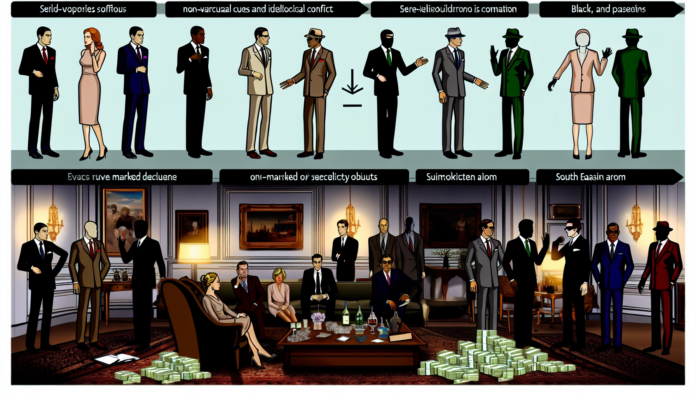Introduction
One of the most infamous sex scandals of the early 21st century involved former South Carolina Governor Mark Sanford and his secretive affair with Argentine journalist María Belén Chapur. This scandal not only shook the political landscape but also highlighted the growing discord within American politics, especially surrounding issues of trust and morality. In 2009, amid a socially conservative climate, Sanford went missing, only to reveal that he had been in Argentina, exploring a romantic relationship while his state faced pressing issues. This scandal encapsulated the prevailing attitudes toward fidelity, personal accountability, and political integrity, serving as a catalyst for both personal and ideological conflicts.
The Scandal
In June 2009, Sanford disappeared from public view, prompting confusion and concern. News outlets buzzed with speculation, and his absence became a point of heavy scrutiny. Upon his return, he confessed not only to having been in Argentina but also to his affair with Chapur. In a tearful press conference, he stated, “I’ve been unfaithful to my wife,” which sent shockwaves through both his personal life and the political sphere.
- Key Events:
- The Disappearance: Initial concern led to sensationalized media coverage. Many wondered if he had fallen victim to foul play.
- The Revelation: Sanford’s confession marked a significant turning point, as public trust wavered.
- Public Reaction: Reactions ranged from outrage to empathy; many saw his failure as reflective of wider issues in political accountability.
Perspectives from the time highlighted the polarized responses. Conservative commentators expressed disappointment, viewing his actions as a betrayal of family values, while others questioned the media’s right to invade his personal life.
Moral and Cultural Analysis
The fallout from Sanford’s scandal was immediate and far-reaching. His marriage to Jenny Sanford crumbled, leading to public spectacles of anguish and bitter divorce proceedings. The political implications were substantial; Sanford’s reputation was irreparably tarnished.
Societal Reaction
- Conservative Backlash: Many fellow Republicans distanced themselves from Sanford, fearing the scandal would further tarnish the party’s image.
- Public Discourse: The episode ignited discussions about privacy and morality in politics. Was an affair a disqualifying factor for leadership? Opinions diverged based on political affiliation.
Long-term Consequences
- Political Career: Sanford eventually lost his gubernatorial position and had to navigate the complexities of public image rehabilitation, reopening wounds during his later attempts to enter Congress.
- Cultural Shift: Today, similar scandals often evoke a mix of shock and apathy, reflecting a society increasingly desensitized to personal failings in public figures.
Modern Perspective
Had this scandal occurred today, the public response might have been markedly different. In a landscape where political figures often navigate controversies with social media savvy, a nuanced understanding of personal and professional boundaries may lead to varied reactions. Additionally, the rise of movements advocating for personal autonomy and the complexity of relationships challenges traditional moral paradigms.
In sum, Sanford’s affair reveals how deeply political discord intertwines with personal failure, illuminating society’s evolving perceptions of leadership and morality in the political arena.

